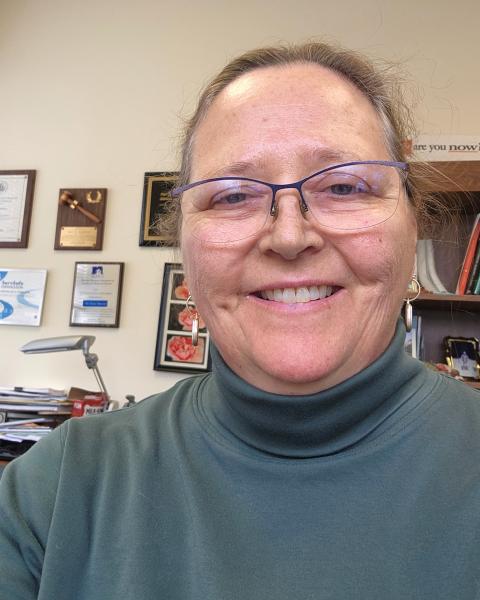Food Pantry Donations from Home Gardeners Fact Sheet
Produce from home gardens can be a good source of fruits and vegetables for individuals who rely on food pantries as a source of food. Use this checklist to ensure your fruit and vegetables are safe to donate and acceptable to your local food pantry.
Growing Produce
- Your garden is located away from manure piles, garbage cans, septic systems, and areas where farm animals and/or family pets roam.
- When using compost or manure to fertilize your garden, follow the application guidelines below:
- If you use commercial compost, it is ok to apply at any time.
- If you use compost from your home and don’t add animal products (animal waste, meat scraps from the table, dairy or eggs) to the pile, it is ok to apply at any time after it is finished compost.
- If you use raw manure or compost with animal products in it, apply after the previous growing season (usually during the fall).
- Safe water is used for irrigating your garden.
- If you get your water from a municipal water system, it has been tested and is safe.
- If your water source is a well, test once a year to be sure it meets drinking water standards.
- Surface water (lakes, ponds, rivers, and streams) can be polluted by human sewage or animal waste, so should be avoided as a garden water source.
- Do not use pesticides (insecticides, herbicides, etc.) on the crops or, if you do, ensure that these pesticides are used according to the label requirements on the product container.*
*Produce donated to a charity may be considered an agricultural commodity, and a license may be needed if pesticides are used in crop production. The homeowner in this case becomes a “Private Applicator.” For more information: New Hampshire Department of Agriculture, Markets & Food, Division of Pesticide Control (603) 271-3694.
- Clean hands or clean gloves are used when picking produce.
- Clean containers are used for harvesting, storing, and transporting your produce to the pantry. Do not use garbage bags or containers that previously held chemicals to harvest, store, or deliver your donation to the food pantry – these are not food safe.
- If you cannot deliver right away, store the produce so that it remains fresh and donate as soon as possible. This produce storage guide (https://fruitsandveggies.org/wp-content/uploads/2019/04/Storing_Fruits_Veggies_FINAL-pdf.jpg) details the best storage conditions for fresh fruits and vegetables.
- Unwashed produce is safe to donate. Try your best to gently remove any excess garden soil. A clean paper towel can be used on some produce, such as tomatoes or summer squash. Contact the Yard & Garden Education Center if you have a question about whether and how you should wash your produce before donating it.
- Contact your local food pantry to see if they can accept your donation. Most will welcome what you have to offer but some food pantries may not have the capacity to safely store and distribute fresh vegetables and fruit.
- Donated fruit and vegetables have no signs of mold, spoilage, bruising, or insect damage. Oddly shaped produce is acceptable.
- Home-canned fruit and vegetables, including jams, jellies, and pickles, are not donated to food pantries. New Hampshire food pantries, feeding programs, and food banks are not allowed to accept nor distribute them.
If you are looking for a food pantry to donate to, start by looking around your community, searching online, or contacting the New Hampshire Food Bank to find a local member agency (https://nhfoodbank.org/find-food/food-map/). You can also find places to donate by searching the NH Food Access Map (https://extension.unh.edu/resource/new-hampshire-food-access-map)
Consider participating in the Plant A Row initiative (https://extension.unh.edu/new-hampshire-4-h/pathways/healthy-living/nutrition/plant-row). This program is a hands-on neighbor-helping-neighbor initiative where households grow an extra row or container of produce to donate to a local food pantry, neighbor in need or to supplement their own fresh vegetables.
Gardeners, farms, and stores who donate food such as produce from their gardens and grocery products to nonprofit organizations for distribution to people in need are protected from criminal and civil liability by the federal Bill Emerson Good Samaritan Food Donation Act. Donors are protected from civil and criminal liability should the product donated in good faith later cause harm to the recipient. Find out more about the Good Samaritan Food Donation Act. (https://www.feedingamerica.org/ways-to-give/corporate-and-foundations/product-partner/bill-emerson)
Five Tips for Growing and Harvesting Produce Safely section adapted from Five Steps to Food Safe Fruit and Vegetable Home Gardening; Project of the Universities of Rhode Island, Connecticut, Maine, New Hampshire, and Vermont and funded by CSREES/USDA. Project 2003-5111001713, https://extension.unh.edu/sites/default/files/migrated_unmanaged_files/Resource001093_Rep1366.pdf
Storing Fresh Fruits and Vegetables for Best Flavor information sheet, Produce for Better Health Foundation, https://fruitsandveggies.org/wp-content/uploads/2019/04/Storing_Fruits_Veggies_FINAL-pdf.jpg
Michigan State University Extension. Extension Bulletin, Donating Surplus Garden Produce Fresh Produce Guidelines for Gardeners. Extension Bulletin E3201. April 2018, https://www.canr.msu.edu/uploads/resources/pdfs/e3201_wcag_2.08.pdf
U.S. Department of Agriculture and U.S. Department of Health and Human Services. Dietary Guidelines for Americans, 2020-2025. 9th Edition. December 2020, https://www.dietaryguidelines.gov/
Ann Hamilton and Mary Saucier Choate are Food Safety Field Specialists, and Wendy Johnecheck is a Food Safety State Specialist with the Extension Food & Agriculture team.
